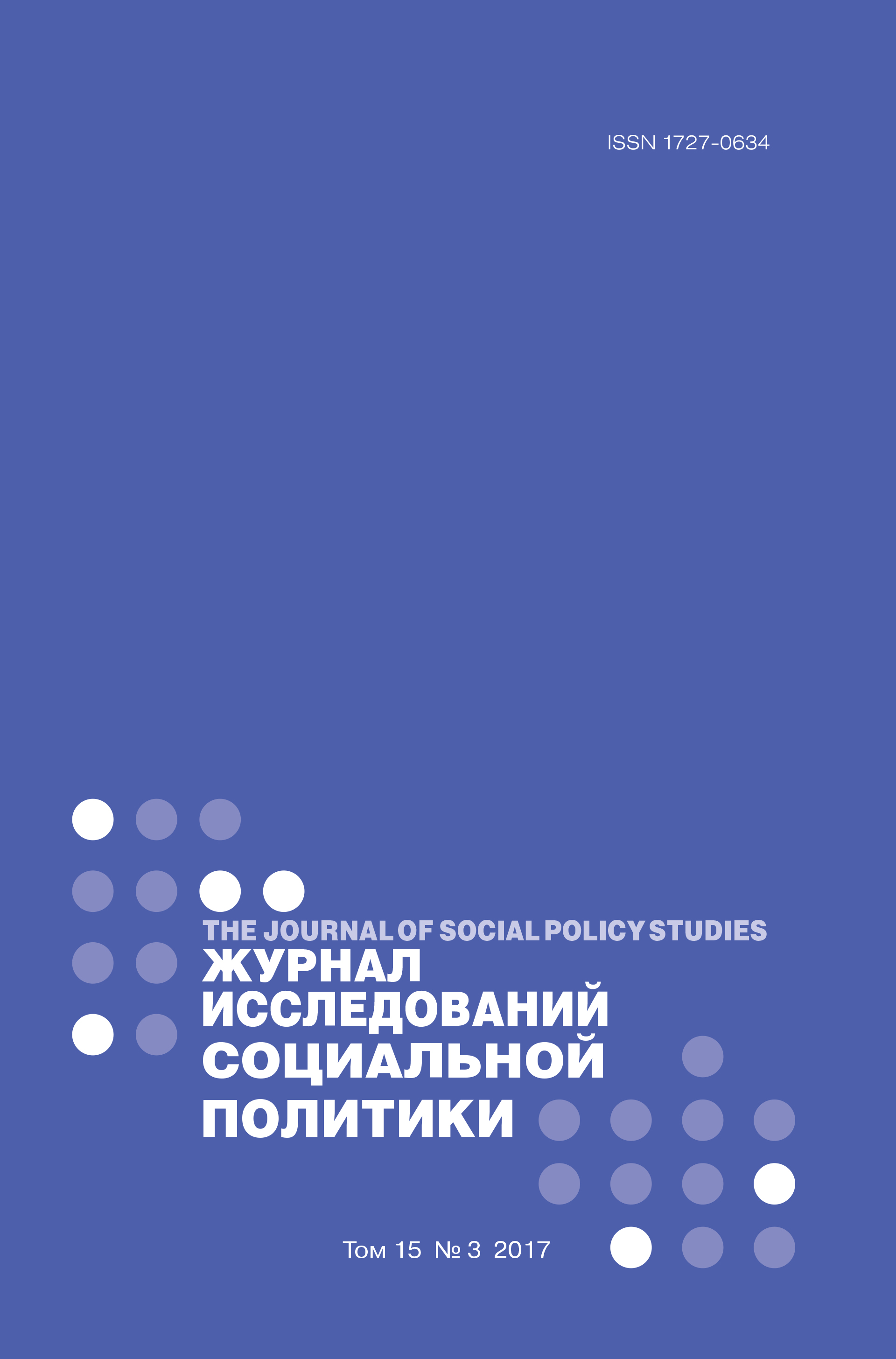Social Adaptation among Graduates from Orphanages in the Russian Media: A Thematic Analysis of Publications for 2014–2015
Abstract
Roman Abramov – PhD, associate professor, Social Science Department of NRU HSE, senior researcher, Institute of Sociology Russian Academy of Science, Moscow, Russian Federation. Email: rabramov@hse.ru
Ksenia Antonova – doctorate student, Social Science Department of NRU HSE, Moscow, Russian Federation. Email: ksantonova@yandex.ru
This article considers images of orphanage graduates formed by the electronic and print media in Russia and is based on the materials from a study entitled 'The trajectories of social and professional adaptation of graduates of children’s homes'. The study aimed to obtain analytical information on the socio-psychological and professional adaptation of children from Russian Orphanages. Using the automated media monitoring system 'Medialogia', the authors analyze thematic publications from seven Russian regions: Moscow, St. Petersburg, Irkutsk, Kaliningrad, Novosibirsk, Tver, and Yaroslavl. Textual analysis is based on one hundred articles selected as they enjoy the highest rating of re-quoting and republishing. A thematic map of topics constructed within this analysis shows that the main body of publications is focused on issues of compliance and violation of the orphan rights and the provision of benefits, including housing. Also attracting attention are government, NGOs and private volunteer initiatives in organising adaptation programs for orphans. On the basis of these textual materials, we have developed a thematic typology of media representations of this social group. The following types were unearthed: a positive-independent (successfully adapted and self-made orphanage graduates), a positive-passive (so-called ‘adult children’), the negative-independent ('deviants') and negative-passive (orphanhood as a social stigma). What becomes clear is that 'positive-passive' media images are the most common in the printed media at the current moment. This stigmatises orphanage graduates, positioning them as not adapted to 'real' life. The positive-independent media image occurs more rarely, usually only in the context of an orphanage graduate building a successful career. This image corresponds to specific individual biographies, while other media images tend to be devoid of personality or gender characteristics. This, the media forms a ‘typical’ path in the socialisation of orphan graduates that does not take into account modern pedagogical and psychological practices. These practices are associated with the individual work of educators and social workers with the orphans, who work to prepare children for release from an orphanage or boarding school. The analysis in this paper suggests that the main body of materials on orphanage graduates does not reflect the diversity of problems and challenges faced by this category of citizens.















